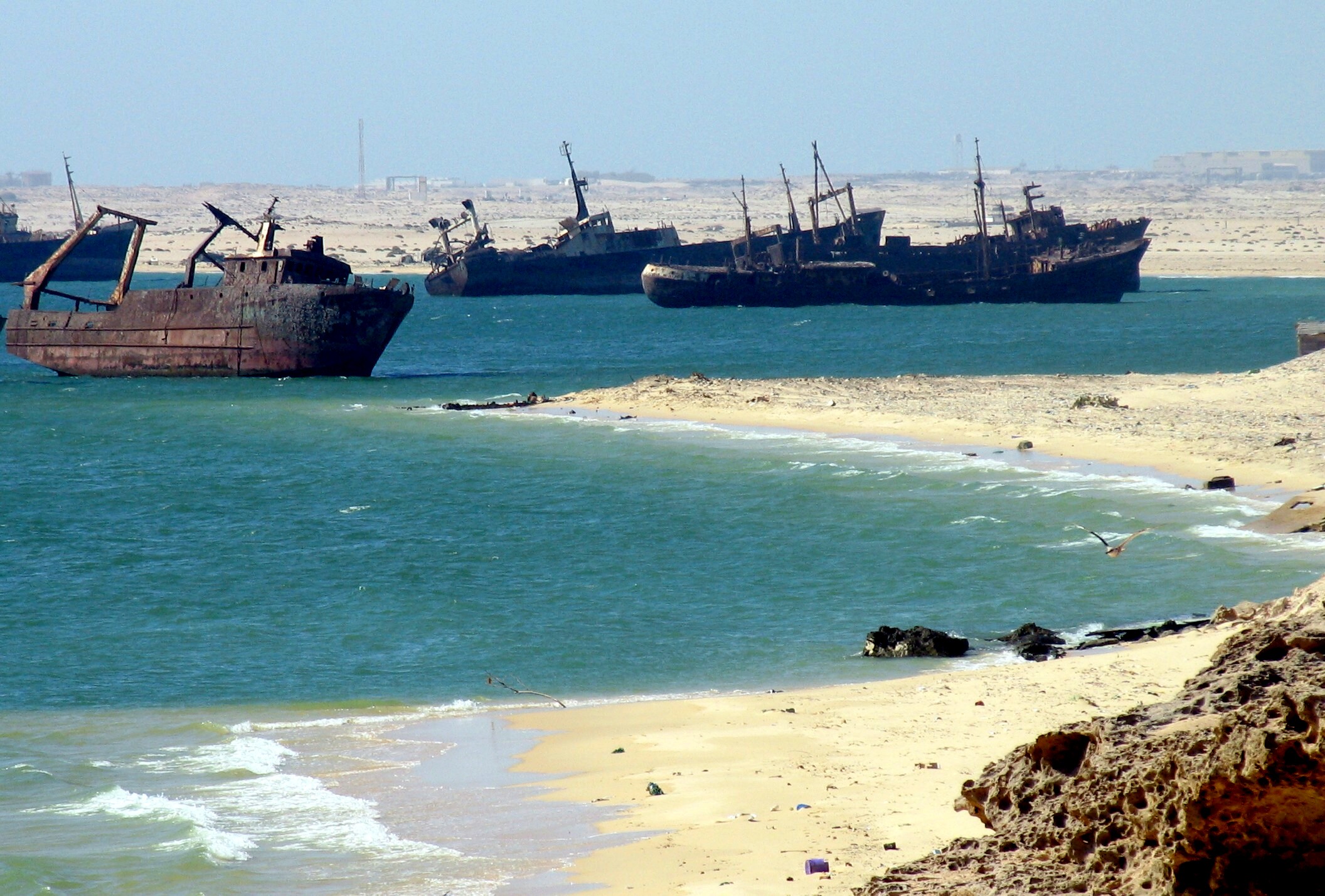Toxic coastline found in West Africa
New research shows unusually high levels of banned toxins in West African coastal regions. Though not certain, the researchers highlight a huge ships’ graveyard in the area as a possible source of the pollution. The research raises questions about environmental law enforcement surrounding the dismantling of ships (or ship breaking) in the developing world.

 Very high levels of extremely toxic compounds have been detected along the coast of West Africa despite being banned in Europe and the U.S. for some time, raising concerns about unregulated ship dismantling.
Very high levels of extremely toxic compounds have been detected along the coast of West Africa despite being banned in Europe and the U.S. for some time, raising concerns about unregulated ship dismantling.
New research carried out by scientists from Bilbao, Spain and Lancaster, UK shows that cancer causing polychlorinated biphenyls (PCBs) are in the air at sea and on land in many West African nations.
The levels surprised the researchers because PCB production has been banned in the U.S. since 1979 and in Europe since 2001, when many countries signed up to the Stockholm Convention on Persistent Organic Pollutants (POPs).
Ailette Prieto, co-author of the research published in the journal ‘Environmental Science and Technology’, said: “We were not expecting to find such high levels of PCBs, highly toxic compounds that are considered as priority compounds by European legislation, in a region such as the western coast of Africa.”
The scientists collected data over several years from a ship off the coast and land-based stations in Gambia, Sierra Leone, Ivory Coast and Ghana.
In order to source the pollution they used modelling to track from where the particles were likely to have dispersed.
The PCBs could have come from a variety of sources and the team continue to examine samples collected in expeditions in late 2010.
Team leader, Rosalinda Gioia said that high PCB levels can come from “the illegal dumping of waste containing these compounds - they can be released through volatilisation and uncontrolled burning” but it can also come from “the storage and scrapping of old ships”.
Their research points to the pollution coming from one of the world’s largest ship graveyards off the coast of Mauritania.
Another possible source might be the burning of organic material during regional forest fires but the scientists have discounted this theory because they would expect elevated levels of other pollutants.
The research highlights the importance of regulated ship dismantling (or ship breaking) in the developing world where environmental groups such as Greenpeace have criticised the lack of environmental laws surrounding the industry.
Image: Slosada
